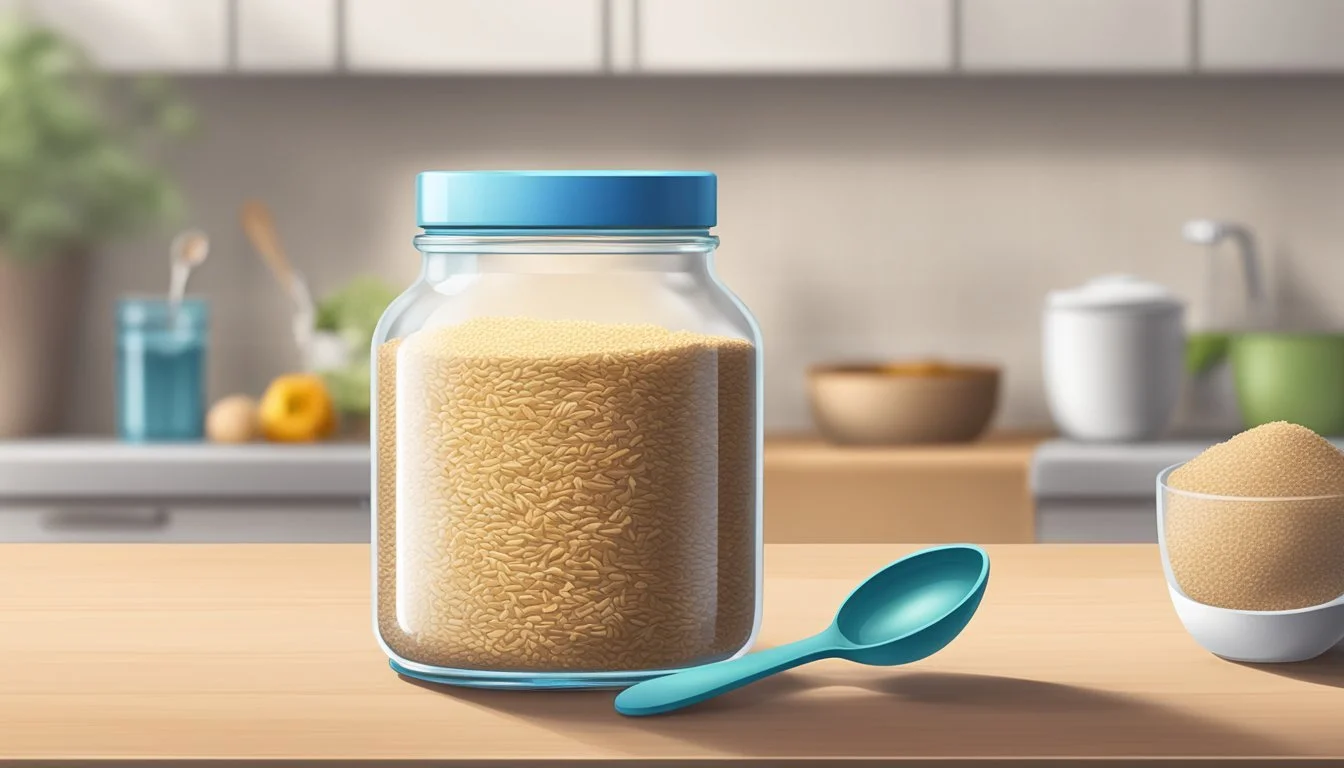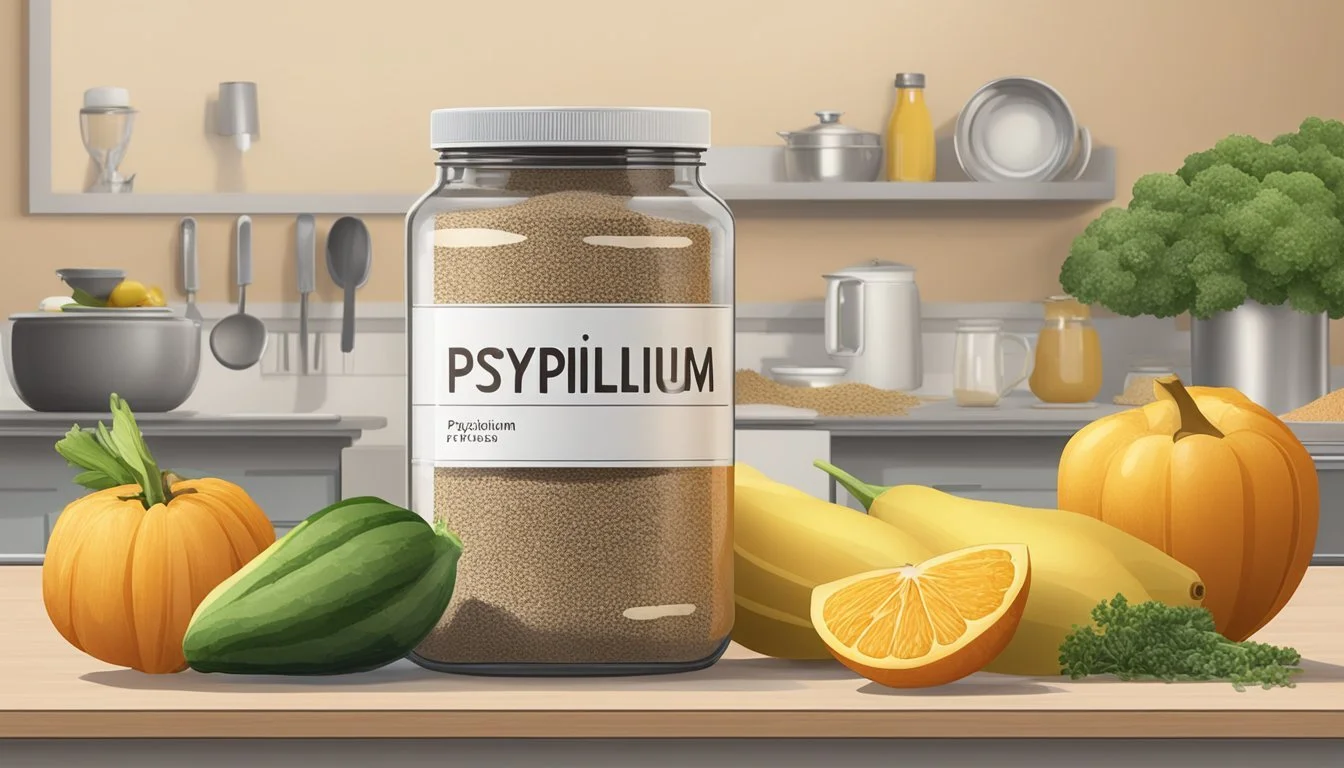Does Psyllium Husk Go Bad?
Shelf Life and Storage Tips
Psyllium husk, a popular fiber supplement, plays an essential role in maintaining gut health due to its high content of soluble fiber. It’s crucial for consumers to understand the shelf life of psyllium husk to ensure they are getting its full health benefits. Psyllium husk can indeed go bad, losing its effectiveness after a certain period.
Whole husk form has the most prolonged shelf life, lasting 2-3 years when stored in a cool, dry place. Ground husk, being slightly processed, has a shorter shelf life of 1-2 years under similar storage conditions. Psyllium husk capsules, while convenient, also lose their effectiveness after expiration, failing to form the soft gel necessary for digestive health.
To maximize the benefits of psyllium husk, proper storage is key. Always check for signs of spoilage, like a sour or moldy smell. Using expired psyllium may result in reduced health benefits, making it essential to use fresh products to maintain effective gut health.
Understanding Psyllium Husk
Psyllium husk, derived from the seeds of Plantago ovata, is a powerful soluble fiber known for its benefits to digestive health and heart health. It is available in various forms, each with unique properties and uses.
Psyllium Husk Composition
Psyllium husk is primarily composed of soluble fibers, which absorb water and form a gel-like substance in the digestive tract. This gel helps in regulating bowel movements and extending food absorption. The fiber content contributes significantly to its health benefits, aiding in digestion.
Dietary fiber from psyllium husk helps lower cholesterol by binding bile acids. It also potentially lowers blood sugar levels by slowing carbohydrate absorption, impacting the glycemic index. Its fiber content is critical for managing constipation and diarrhea.
Health Benefits and Uses
Psyllium husk offers multiple health benefits. One of its primary uses is to relieve constipation due to its ability to bulk and bind stools, making them easier to pass. It can also be beneficial for those suffering from irritable bowel syndrome (IBS) by promoting regular bowel movements.
Psyllium husk's soluble fiber can lower cholesterol levels, supporting heart health. Regular intake may contribute to weight loss by promoting a sense of fullness, reducing overall caloric intake. Additionally, it can help manage blood sugar levels, making it useful for people with diabetes.
Different Forms of Psyllium
Psyllium husk is available in various forms, including whole husk, ground husk, and capsules. Whole husk has the most extended shelf life and can last 2-3 years when stored properly. Ground husk, being more processed, has a shorter shelf life of 1-2 years.
Psyllium capsules are convenient for fast consumption and consistent dosing. Each form retains the essential benefits but varies in terms of storage needs and shelf life. It is important to keep these forms in sealed containers, stored in cool, dry places to maintain their efficacy.
Shelf Life and Storage
Psyllium husk, whether whole or ground, can last for a significant period if stored properly. However, certain factors can affect its longevity and potency over time.
Proper Storage Conditions
To maximize the shelf life of psyllium husk, it should be stored in a cool, dry place, away from direct sunlight and moisture. An airtight container is essential to keep the husk free from air exposure, which can degrade its quality. Whole psyllium husk generally lasts 2-3 years, whereas ground husk lasts around 1-2 years if stored correctly.
Key Points:
Airtight containers prevent air exposure.
Cool and dry environments are ideal.
Avoid direct sunlight to prevent degradation.
Signs of Spoilage
Even with proper storage, psyllium husk can spoil. Signs of spoilage include changes in color, texture, or smell. The husk may develop a stale or off odor, indicating it's no longer good to use. If the husk becomes clumpy or exhibits any signs of mold, it should be discarded immediately.
Indicators:
Color change: Darkening or discoloration.
Texture change: Clumping or hardness.
Smell: Off or stale odor.
Mold: Visible mold presence.
Impact of Storage on Potency
Proper storage not only extends the shelf life but also preserves the potency of psyllium husk. Exposure to air and moisture can reduce its fiber content, making it less effective. Keeping it in airtight containers and away from humidity ensures that it retains its fiber efficacy, crucial for its health benefits.
Impact Factors:
Air and moisture: Decrease fiber content.
Airtight storage: Maintains potency.
Humidity control: Ensures fiber efficacy.
Packaging Tips:
Use airtight containers.
Store in a cool, dry place.
Keep away from direct sunlight.
Safe Consumption
Psyllium husk is a widely-used soluble fiber known for its digestive benefits. While generally safe, it is crucial to adhere to recommended dosages and be aware of potential interactions and side effects.
Recommended Dosage
Psyllium husk is best consumed by following dosage instructions provided on product labels. For adults, a typical dosage ranges between 5 to 10 grams once or twice daily. It is essential to mix psyllium husk with at least 8 ounces of water or another liquid to ensure proper digestion and avoid choking.
Taking psyllium husk with insufficient fluids can lead to intestinal blockages. Dosages may vary based on individual health conditions, so consulting with a healthcare provider is prudent, especially for those with underlying health issues.
Precautions and Side Effects
While psyllium husk is considered safe for most people, certain precautions should be taken. Individuals who are allergic to psyllium should avoid its consumption, as it can cause allergic reactions such as rashes or difficulty breathing.
Common side effects include bloating, gas, and stomach cramps. These usually diminish with regular use. If severe side effects occur, such as chest pain or trouble swallowing, immediate medical attention is required. Pregnant or breastfeeding women should also consult their doctors before taking psyllium husk.
Interactions With Medications
Psyllium husk can interact with various medications, potentially altering their effectiveness. It can affect the absorption of certain drugs, such as antidepressants, diabetes medications, and heart medications. Psyllium should be taken at least two hours before or after such medications to prevent interactions.
Consulting a healthcare provider about potential interactions is crucial, particularly for individuals on chronic medications. They can provide personalized advice on the safe timing and dosage of psyllium husk relative to other medications.
When to Consult a Doctor
Consulting a doctor before starting psyllium husk is vital for individuals with pre-existing health conditions or those taking regular medications. People who experience severe or unusual side effects should also seek immediate medical advice.
Additionally, if there are signs of an allergic reaction, such as hives or breathing difficulties, a healthcare provider should be contacted right away. Regular check-ins with a doctor can help ensure safe and effective use of psyllium husk, keeping any potential risks to a minimum.
Nutritional Considerations
Psyllium husk is known for its significant nutritional benefits, particularly in relation to fiber intake, blood sugar, cholesterol levels, and digestive health.
Fiber Intake Requirements
Psyllium husk is a rich source of soluble fiber. Soluble fiber is essential for maintaining healthy bowel movements and overall digestive health. The recommended daily intake of fiber varies by age and sex, but adults generally require about 25 to 38 grams per day.
Psyllium husk can contribute significantly to meeting this daily fiber requirement. One tablespoon of psyllium husk provides approximately 5 grams of fiber, making it an effective supplement for those struggling to meet their fiber intake goals through diet alone. Regular consumption can help ensure that dietary fiber needs are consistently met.
Impact on Blood Sugar and Cholesterol
Psyllium husk has been shown to positively affect blood sugar and cholesterol levels. When taken with meals, the soluble fiber in psyllium slows carbohydrate breakdown, helping to maintain better glycemic control. This is particularly beneficial for individuals managing diabetes or other blood sugar-related conditions.
Additionally, psyllium husk can lower LDL cholesterol levels, which are linked to heart disease. By forming a gel-like substance in the digestive tract, psyllium traps cholesterol and prevents its absorption into the bloodstream. This mechanism helps reduce overall cholesterol levels, promoting heart health and reducing the risk of cardiovascular issues.
Contribution to Digestive Health
One of the primary benefits of psyllium husk is its impact on digestive health. As a bulk-forming laxative, psyllium absorbs water and expands, which helps to form softer, more manageable stools. This can alleviate constipation and promote regular bowel movements.
Regular intake of psyllium husk supports the digestive system by maintaining stool consistency and reducing instances of both constipation and diarrhea. Psyllium also supports a healthy balance of gut bacteria, which is crucial for the overall function of the digestive tract.
Incorporating psyllium husk into one's diet can thus provide a practical solution for maintaining digestive health and ensuring regularity.
Incorporating Psyllium into Your Diet
Psyllium husk is a versatile source of fiber that can be easily added to various meals and recipes. Whether you're blending it into smoothies or baking with it, this soluble fiber plays a significant role in improving digestive health.
Tips for Starting Psyllium
When incorporating psyllium into your diet, start with small amounts to allow your digestive system to adjust. Begin with a teaspoon of psyllium husk added to liquids like water or smoothies. Gradually increase the quantity as your body gets used to the added fiber.
It's crucial to drink plenty of water when consuming psyllium because it forms a gel in the digestive tract. This gel helps to soften stools and promote regular bowel movements. Without adequate water, it can cause discomfort or digestive blockages.
Recipes and Ideas
Psyllium husk can be added to many recipes to boost fiber intake. For a simple start, blend a teaspoon of psyllium into your morning smoothie with fruits, almond milk, or protein powder. This not only enhances digestive health but also provides a feeling of fullness.
In baking, psyllium husk can be mixed into bread, muffins, or cookies. Incorporate it into the dry ingredients to ensure even distribution. For instance, adding a tablespoon to your favorite muffin recipe can improve texture and fiber content.
For an easy breakfast, stir psyllium husk into a bowl of oatmeal. This dish benefits from the extra fiber and becomes more satisfying. You can also sprinkle psyllium on yogurt or mix it into soups for added thickness and dietary fiber.






